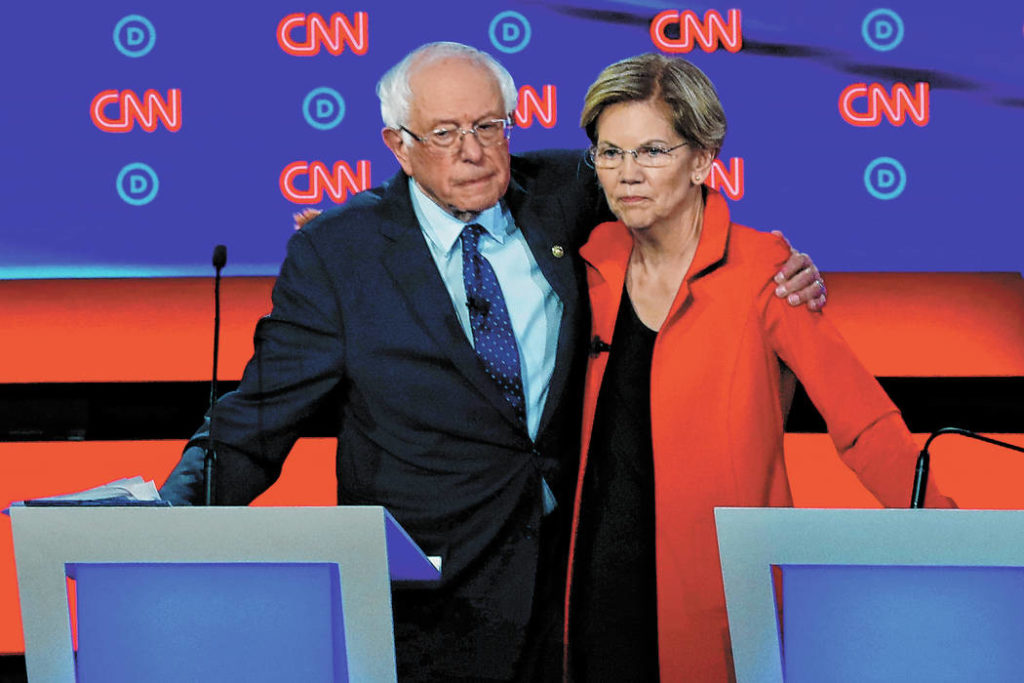The Post-Iowa State of the Race

All of Levitz’s analysis is good, and I think the conclusion is the key:
As for Sanders himself, his showing in Iowa looks good, if not quite great. The senator’s lead in the popular vote narrowed over Buttigieg after realignment, which spotlights his campaign’s main challenge: While the size and vitality of his core-supporter base is unrivaled, Sanders remains a relatively unpopular second choice among the backers of every other candidate save Warren. Meanwhile, the ostensible failure of his campaign to drastically increase voter turnout or mobilize an exceptionally high number of first-time caucusgoers does not bode well for his prospects of remaking the electorate in other states. In Iowa, Sanders’s team had months to concentrate its resources on a limited playing field. It reportedly knocked on over 100,000 doors. If this was insufficient to significantly increase turnout among disaffected anti-Establishment voters, it’s hard to see the campaign achieving such turnout when it needs to spread its cash and staff more thinly across the country.
But Buttigieg’s strong showing and Biden’s weak one go a way toward mitigating these challenges. The more crowded the field remains, the higher the probability that Sanders’s high floor of support will be sufficient to win the primary. If current polling holds up, the Vermont senator is poised for a comfortable win in New Hampshire with competitive showings in Nevada and South Carolina. If his campaign can persuade Warren supporters to rally behind the front-running progressive — and thus bump his floor of support up to 30 percent instead of 20 — he should be in contention for a long time to come.
I think this is right. On the one hand, Iowa cuts strongly against the always implausible theory that Sanders can just mobilize a large number of nonvoters who are alienated from the process because mainstream politicians aren’t offering policies that are left-wing enough. There’s never been any evidence that a significant such block of voters exists. Bernie is going to need the votes of a significant votes of normie Democrats to win the nomination and the vast majority of them to win a general election. A lot of members of the Bernie Extended Cinematic Universe don’t seem to understand this — and indeed the “non-voters in West Virginia want MOAR SOCIALISM fantasy” seems primarily a way of squaring the “how can we win the Democratic nomination without working with those icky shitlibs” circle — and it’s unclear how much this thinking exists in the Sanders campaign itself. As Levitz says, the fact that he’s alienated a lot of ’16 Hillary voters makes him vulnerable to a theoretical moderate unity candidate.
Having said that, Bernie also seems pretty clearly to be the favorite right now. Biden’s collapse in the Iowa polls does nothing to dissuade me from my conviction that he’s unusually weak for a nominal frontrunner, and his case is so tied to perceptions of electability he can’t afford many more underwhelming performances. Buttigieg being the co-winner, conversely, is the second-best scenario for Bernie after a clear win. While I’m not a fan Buttigieg obviously has political talent — and a gay man getting the most delegates in the Iowa primaries is, historically, a big deal even if it’s easy to take it for granted now — but I just don’t see any way he has a path to the nomination as retail politics becomes mostly irrelevant and electorates get more diverse. Unless there’s a contested convention, for Bernie to lose either Biden is to have to recover quickly or a lot of people in the moderate lane are going to have to decide that they prefer Warren. (We should also mention Steyer and Bloomberg, neither of whom can win the most delegates but both of whom might peel off moderates Biden desperately needs to consolidate.) Neither of those things are impossible, but neither strikes me as terribly likely. Bernie is, for better or worse, in very good shape.
